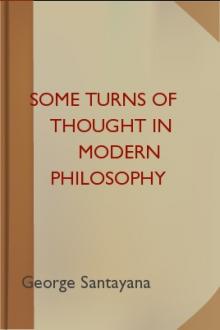Genre - Philosophy. You are on the page - 7

lly grow up.Filial piety and fraternal submission!-- are they not the root ofall benevolent actions?'CHAP. III. The Master said, 'Fine words and aninsinuating appearance are seldom associated with true virtue.'CHAP. IV. The philosopher Tsang said, 'I daily examinemyself on three points:-- whether, in transacting business forothers, I may have been not faithful;-- whether, in intercoursewith friends, I may have been not sincere;-- whether I mayhave not mastered and practised the instructions of

es sleep because it has a dormitive virtue. The virtues or moral uses of things, according to Socrates, were the reason why the things had been created and were what they were; the admirable virtues of opium defined its perfection, and the perfection of a thing was the full manifestation of its deepest nature. Doubtless this moral interpretation of the universe had been overdone, and it had been a capital error in Socrates to make that interpretation exclusive and to substitute it for natural

s of derision, although his majestic face and dignified manner were only calculated to excite admiration. As the shouts of laughter and yells of derision came down to his ears he raised his head and uttered a few words."Who is he?" asked Marcellus. "Alexander, a teacher of the abominable Christian sect. He is so obstinate that he will not recant--" "Hush, he is speaking." "Romans!" said the old man, "I am a Christian. My God died for me, and I gladly

rights, or, what is equal, that' knowledge which would infallibly secure them. The Methodist preacher, who has the foolish effrontery to tell his congregation 'the flesh lusteth always contrary to the spirit; and, therefore, every person born into the world deserveth God's wrath and damnation,' may be a liberal politician, one well fitted to pilot his flock into the haven of true republicanism: but the author is extremely suspicious of such persons, and would not on any account place his
A System of Logic, Ratiocinative and Inductive by John Stuart Mill (any book recommendations .txt) 📕

nd unimportant compared with the agreements; and he has not only enriched the exposition by many applications and illustrative details, but has appended to it a minute and very valuable discussion of the logical principles specially applicable to each of the sciences--a task for which the encyclopedical character of his knowledge peculiarly qualified him. I have in several instances made use of his exposition to improve my own, by adopting, and occasionally by controverting, matter contained in

of sense is but a small part of the pleasure he actually experiences.That pleasure, as a whole, is a highly complex thing, and rests mainlyon a basis that, by a little knowledge, could be annihilated in amoment. Tell the boy what the champagne really is, he has been praising;and the state of his mind and face will undergo a curioustransformation. Our sense of the worth of life is similar in itscomplexity to the boy's sense of the worth of his wine. Beliefs andassociations play exactly the same